Learning Theory or Pastime of the Self-Amused?
which was one of the required readings. And after creating a wordle I input the common words into
 flickrCC.
flickrCC.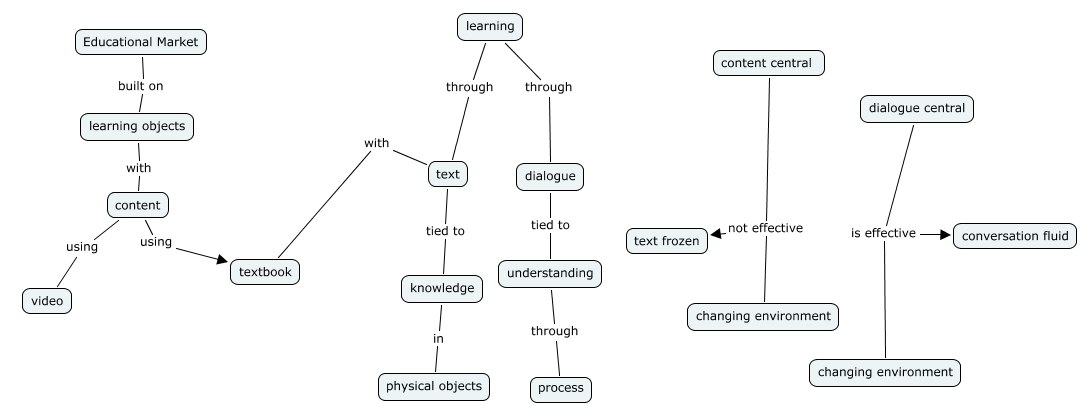
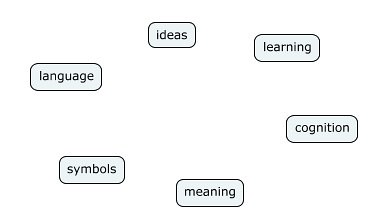
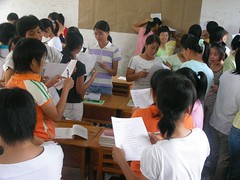


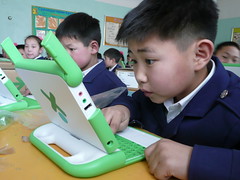
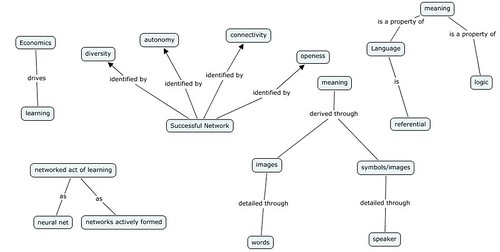
Blogged with the Flock Browser
 flickrCC.
flickrCC.






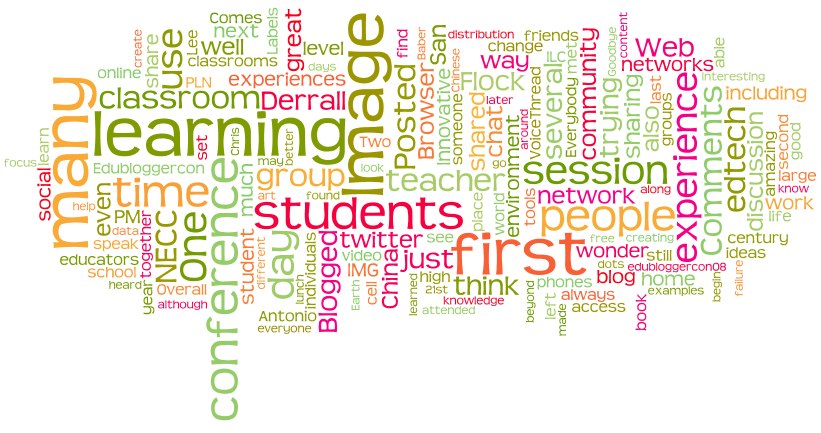
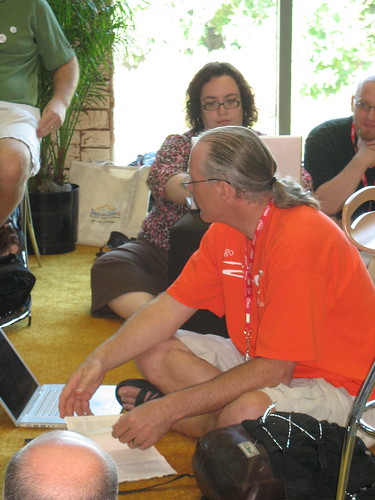 had many varied experiences and connections. The first day for Edubloggercon I sat in on a discussion of the book Here Comes Everybody by Clay Shirky. A group of educators sat in a circle with Will Richardson facilitating the discussion. Many voices were heard in that short period of time and the most powerful ones were by educators I was not familiar with. Comments by those who were more well known were not as powerful as others. A large part of the discussion was addressing elements of the book and how it should impact our teaching and classrooms. The group who participated included many leaders in the implementation of 21st century tools. Many of them had laptops, cell phones and were well versed in all the vocabulary and experiences that Web 2.0 has to offer. Dean Shareski put together a compendium of video images composed of friends within his PLN from amongst those gathered. One interesting result of what Dean uploaded to Youtube was a repurposing of this home movie of friends as a foundation for a blog post by Mathew Tabor of why he doesn't or wouldn't go to the NECC. It was amazing and somewhat disturbing to see his argument by manipulating what was never intended as a documentary of the event but more of a home movie.
had many varied experiences and connections. The first day for Edubloggercon I sat in on a discussion of the book Here Comes Everybody by Clay Shirky. A group of educators sat in a circle with Will Richardson facilitating the discussion. Many voices were heard in that short period of time and the most powerful ones were by educators I was not familiar with. Comments by those who were more well known were not as powerful as others. A large part of the discussion was addressing elements of the book and how it should impact our teaching and classrooms. The group who participated included many leaders in the implementation of 21st century tools. Many of them had laptops, cell phones and were well versed in all the vocabulary and experiences that Web 2.0 has to offer. Dean Shareski put together a compendium of video images composed of friends within his PLN from amongst those gathered. One interesting result of what Dean uploaded to Youtube was a repurposing of this home movie of friends as a foundation for a blog post by Mathew Tabor of why he doesn't or wouldn't go to the NECC. It was amazing and somewhat disturbing to see his argument by manipulating what was never intended as a documentary of the event but more of a home movie.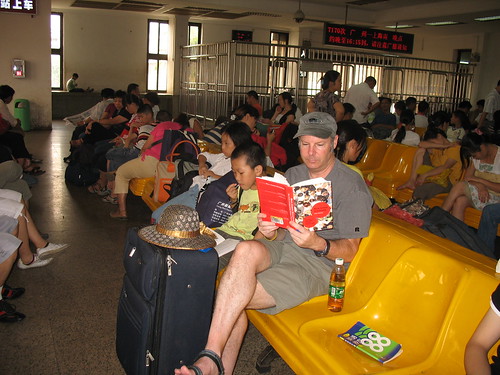 China. What I would like to understand better is what organizing principals or structure was in place before the wide spread distribution of the cell phone. This is most peoples primary tool to connect. As where now when someone in the US who is a savvy user has a problem they may first get online and try and search for a solution. For a well connected Chinese individual it is more a matter of making phone calls moving from the small network to a connector until a solution is found. With a lower standard of living most people cannot yet afford a computer so it will be interesting to see how social networks build up around cell phones.
China. What I would like to understand better is what organizing principals or structure was in place before the wide spread distribution of the cell phone. This is most peoples primary tool to connect. As where now when someone in the US who is a savvy user has a problem they may first get online and try and search for a solution. For a well connected Chinese individual it is more a matter of making phone calls moving from the small network to a connector until a solution is found. With a lower standard of living most people cannot yet afford a computer so it will be interesting to see how social networks build up around cell phones.  learning is moving from a temporary place driven context to a 24/7 environment. Or in other words, "learning extending beyond the classroom." He shared numerous examples in which the student is shifting their focus into a multi-media, mash-up, mixing creation driven world. He ended by sharing his new venture Brightstorm which will be launching shortly.
learning is moving from a temporary place driven context to a 24/7 environment. Or in other words, "learning extending beyond the classroom." He shared numerous examples in which the student is shifting their focus into a multi-media, mash-up, mixing creation driven world. He ended by sharing his new venture Brightstorm which will be launching shortly.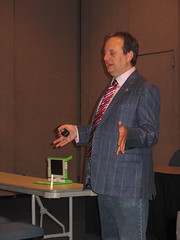 session in which I was able to focus was with Gary Stager. His fiery rhetoric made for an interesting explosion of ideas and the exhortation to change the classroom into a suitable and more effective learning environment for children. His focus was on ways to use a laptop in order to create such an environment.
session in which I was able to focus was with Gary Stager. His fiery rhetoric made for an interesting explosion of ideas and the exhortation to change the classroom into a suitable and more effective learning environment for children. His focus was on ways to use a laptop in order to create such an environment.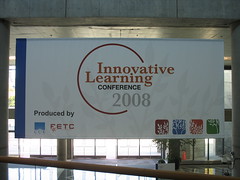 of returning to Northern California.
of returning to Northern California. 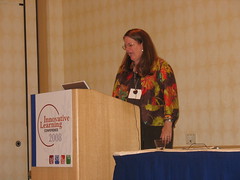 went to was by Gail Lovely on using Web 2.0 tools with elementary age students. The wiki she created has some excellent links to various examples and tools. One tool that is a web version of a tool many of us use is an online version for Inspiration.
went to was by Gail Lovely on using Web 2.0 tools with elementary age students. The wiki she created has some excellent links to various examples and tools. One tool that is a web version of a tool many of us use is an online version for Inspiration.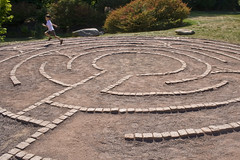 first had a chance to interact with her through the Webcast Academy and watched her help in sharing knowledge on how to set up Apple computers for webcasting. She was a good person to help think through a problem, a type of teacher that I enjoyed doing think alouds with. I hardly knew her and yet I feel as if a path that I could have taken in my life is gone. So much I could have benefited from, her experience in music, her use of computers with students, her P-21 Second Life project, all will be left to where she left them frozen, sitting on some server somewhere. Looking back I understand more of the little bits of information and things she shared when we talked always on Skype, its funny that I rarely used the chat function with her. Speaking was the most common way when I communicated with her, it was the timbre of her voice the inflections and accent which I enjoyed. Although I remember one time when she couldn't talk and I had to use the Skype chat with her while I tried to walk through verbally what we were trying to do. Always I felt comfortable sharing and learning. Even up to our last few interactions she surprised me with her involvement and the breadth of her participation in the "edtech" community for lack of a better word. Even though we never met face to face, Goodbye Lee, my life will not be the same as what could have been, what should have been. You left too early and so many of us still had so much to benefit from your interactions with us.
first had a chance to interact with her through the Webcast Academy and watched her help in sharing knowledge on how to set up Apple computers for webcasting. She was a good person to help think through a problem, a type of teacher that I enjoyed doing think alouds with. I hardly knew her and yet I feel as if a path that I could have taken in my life is gone. So much I could have benefited from, her experience in music, her use of computers with students, her P-21 Second Life project, all will be left to where she left them frozen, sitting on some server somewhere. Looking back I understand more of the little bits of information and things she shared when we talked always on Skype, its funny that I rarely used the chat function with her. Speaking was the most common way when I communicated with her, it was the timbre of her voice the inflections and accent which I enjoyed. Although I remember one time when she couldn't talk and I had to use the Skype chat with her while I tried to walk through verbally what we were trying to do. Always I felt comfortable sharing and learning. Even up to our last few interactions she surprised me with her involvement and the breadth of her participation in the "edtech" community for lack of a better word. Even though we never met face to face, Goodbye Lee, my life will not be the same as what could have been, what should have been. You left too early and so many of us still had so much to benefit from your interactions with us.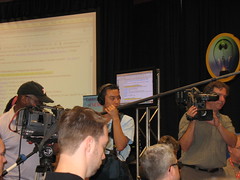 the riser area where Steve Hargadon was facilitating a discussion on which sessions would be presented based on the pollster
the riser area where Steve Hargadon was facilitating a discussion on which sessions would be presented based on the pollster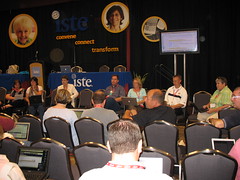 voting. There was also what looked like a professional video team whom I later found out were from Pearson and had posted on the NECC Ning their intentions to capture Edubloggercon with professional cameras and boom mikes as well, which added to the effect. I was a bit distracted as I was meeting people and trying to deal with my computer's inability to access the wireless. I spent most of the morning recognizing and introducing myself to people who I have only met virtually.
voting. There was also what looked like a professional video team whom I later found out were from Pearson and had posted on the NECC Ning their intentions to capture Edubloggercon with professional cameras and boom mikes as well, which added to the effect. I was a bit distracted as I was meeting people and trying to deal with my computer's inability to access the wireless. I spent most of the morning recognizing and introducing myself to people who I have only met virtually.  icipants and one instance in particular Chris Lehman standing up for teachers whenever a discussion was
icipants and one instance in particular Chris Lehman standing up for teachers whenever a discussion was 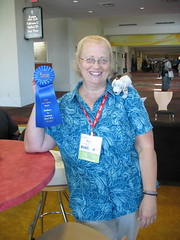 moving towards accusing them of resisting and being unwilling to change. I have to agree because I don't know any teacher who when asked whether they enjoy and embrace this age of testing and multiple choice state tests wouldn't support change.
moving towards accusing them of resisting and being unwilling to change. I have to agree because I don't know any teacher who when asked whether they enjoy and embrace this age of testing and multiple choice state tests wouldn't support change.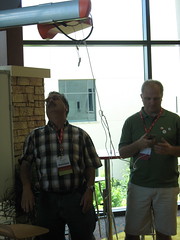 Bud was essentially doing in a spontaneous fashion. I think this is something I realized today that every time someone tries to organize and centralize some element of the edtech learning network that it sort of goes against what we are trying to do in the classroom which
Bud was essentially doing in a spontaneous fashion. I think this is something I realized today that every time someone tries to organize and centralize some element of the edtech learning network that it sort of goes against what we are trying to do in the classroom which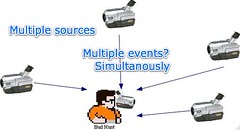 is to create more of a decentralized messy learning environment.
is to create more of a decentralized messy learning environment.  tudent presentations involved the use of slideshare while the students gave their oral component. One group did a VoiceThread, and a couple of groups even did podcasts although they are not uploaded. This first 24 hour Webcastathon will hopefully be the first of many to come. Overall the variety of presentations from other classrooms and teachers was amazing as well as the participation from several different countries.
tudent presentations involved the use of slideshare while the students gave their oral component. One group did a VoiceThread, and a couple of groups even did podcasts although they are not uploaded. This first 24 hour Webcastathon will hopefully be the first of many to come. Overall the variety of presentations from other classrooms and teachers was amazing as well as the participation from several different countries.
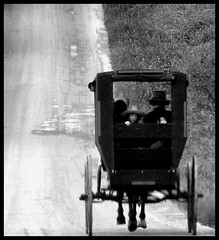















![stethoscope [closr]](http://static.flickr.com/16/88760582_02898df627_m.jpg)

 Teacher X.0!
Teacher X.0!Blogged with Flock
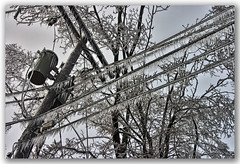 messages. Lucy Gray and myself exchanged a few chat messages and I played with Skype emoticons. Sundays are reserved for our ProTechT conference call on Skype. Later I thought about the fact that I don't even have everyones' cell numbers, addresses, etc. close at hand, but I assume it is accessible on the "net." And in a way, our connections are as tenuous as the wind, fragile but determined, and yet we are as close as we can be. I say that for the moment from a stand point of each members' abilities, and the fact that I can follow, if allowed, each members' status on Skype. No this project does not have the staying power of an ARPANET, we are each joined in a highly personal way, on computers that each of us must maintain, different hardware and OS. We are not at a distance from each other however, in that my concern would surface should anything happen to any one of the participants. Participants have already been sick and earlier Scott also had a very close connection to NIU. It has something of the miracle about it, a project living and breathing with its members. I always hope for my students something of a sense of "groupness," such as this.
messages. Lucy Gray and myself exchanged a few chat messages and I played with Skype emoticons. Sundays are reserved for our ProTechT conference call on Skype. Later I thought about the fact that I don't even have everyones' cell numbers, addresses, etc. close at hand, but I assume it is accessible on the "net." And in a way, our connections are as tenuous as the wind, fragile but determined, and yet we are as close as we can be. I say that for the moment from a stand point of each members' abilities, and the fact that I can follow, if allowed, each members' status on Skype. No this project does not have the staying power of an ARPANET, we are each joined in a highly personal way, on computers that each of us must maintain, different hardware and OS. We are not at a distance from each other however, in that my concern would surface should anything happen to any one of the participants. Participants have already been sick and earlier Scott also had a very close connection to NIU. It has something of the miracle about it, a project living and breathing with its members. I always hope for my students something of a sense of "groupness," such as this. terms of misinterpretations should messages be truncated or too few words not convey the real meaning with conversations interrupted as software crashes or fails. I think there is the element of half empty and half full in ones relationships with others that allows something to grow with these types of activities. Following up on more perspective on Wesley Fryer's Ustream presentation for ProTechT - The wireless started cutting out and a third of the class didn't seem too bothered by it. They moved to the front of the room between the screen and my traditional science black countertop. They were following the chat as well as what audio they could as I kept reloading/refreshing the Ustream feed. The sound came back at the end of a period as if another class had been using up all the bandwidth, which unfortunately my school has a strong tie with iMovies, and was probably the case. There is no bandwidth management and some teachers still don't have good wireless. For the last fifteen minutes the sound was fine, but students, as one would move progressively towards the back, were now holding conversations and they were not listening but were engaged and listening and speaking to each other. So I was let down somewhere in the delivery system, each part not quite correct, but also a future non-issue. I may gain here though the experience in knowledge that sometime shortly will be obsolete, but you have to enjoy in some way or tip the scales to favor the successes over failure and along with all of it the messiness.
terms of misinterpretations should messages be truncated or too few words not convey the real meaning with conversations interrupted as software crashes or fails. I think there is the element of half empty and half full in ones relationships with others that allows something to grow with these types of activities. Following up on more perspective on Wesley Fryer's Ustream presentation for ProTechT - The wireless started cutting out and a third of the class didn't seem too bothered by it. They moved to the front of the room between the screen and my traditional science black countertop. They were following the chat as well as what audio they could as I kept reloading/refreshing the Ustream feed. The sound came back at the end of a period as if another class had been using up all the bandwidth, which unfortunately my school has a strong tie with iMovies, and was probably the case. There is no bandwidth management and some teachers still don't have good wireless. For the last fifteen minutes the sound was fine, but students, as one would move progressively towards the back, were now holding conversations and they were not listening but were engaged and listening and speaking to each other. So I was let down somewhere in the delivery system, each part not quite correct, but also a future non-issue. I may gain here though the experience in knowledge that sometime shortly will be obsolete, but you have to enjoy in some way or tip the scales to favor the successes over failure and along with all of it the messiness.Blogged with Flock
Blogged with Flock
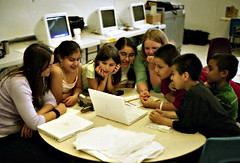
reference: www.flickr.com/photos/30864080@N00/131488403
Blogged with Flock